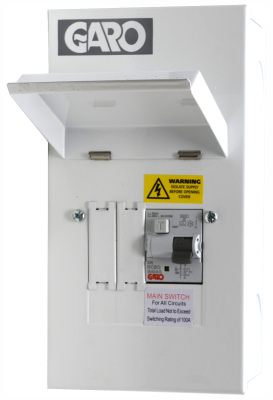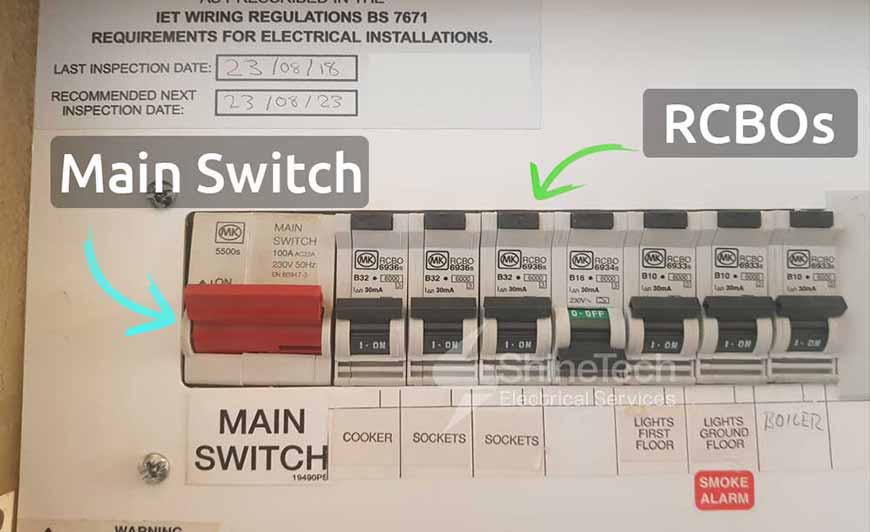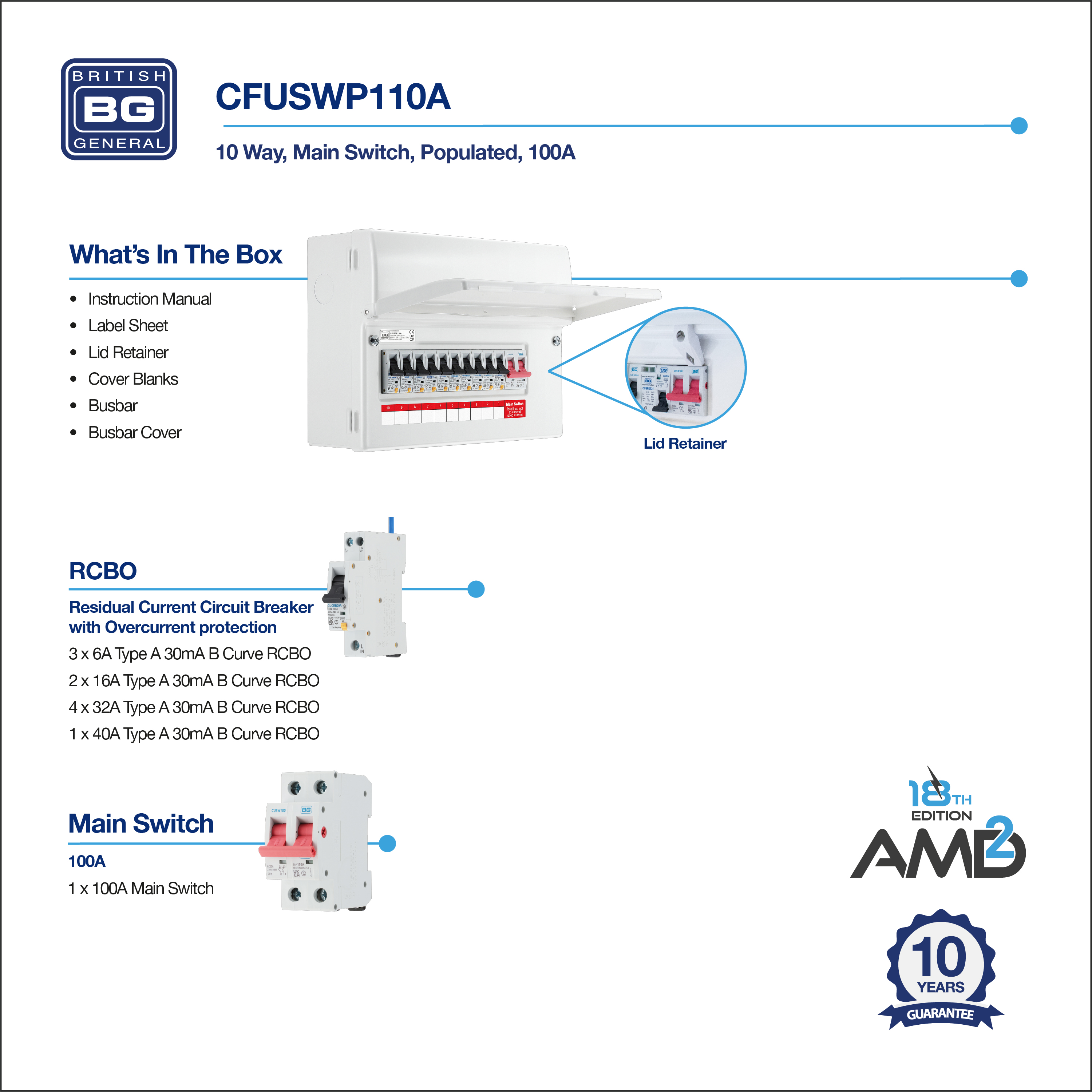The Duty of Customer Systems in Efficient Power Administration Systems
Customer units are integral to effective energy administration systems, working as the key distribution points for electric power within structures. By integrating circuit breakers, they protect circuits from possible overloads, hence preserving safety and security and stopping extensive blackouts. The arrival of smart technologies has actually better improved their performance, enabling real-time information tracking and nuanced power consumption analysis. This combination not only enhances power usage but also facilitates the unification of sustainable energy sources, thus promoting sustainable methods. Just how, after that, do these improvements translate to concrete benefits in daily power administration?
Recognizing Customer Systems

Recognizing the duty of consumer units starts with identifying their essential feature in safeguarding electrical systems. By isolating faults within particular circuits, consumer devices protect against widespread outages and possible fire dangers. This isolation is achieved via making use of breaker that journey or merges that strike when a fault is found, therefore reducing off the electric flow to the affected circuit.
In addition, customer units facilitate the well organized circulation of power, improving the effectiveness of power use. They allow for the organized management of electric tons, which can be particularly vital in industrial and industrial settings where need can rise and fall dramatically. Properly kept consumer devices add to the long life of electric systems and help in lessening downtime triggered by electric failings, eventually supporting the smooth operation of energy-dependent centers.
Smart Technologies Combination

An essential benefit of smart customer systems is their ability to utilize advanced algorithms and device understanding for anticipating analytics. This permits preemptive changes based on usage patterns, weather prediction, and other variables, considerably raising overall efficiency. Clever customer units promote need reaction programs, where energy usage can be dynamically changed throughout top periods to support the grid and lower expenses.
The integration of renewable resource resources, such as solar and wind, is likewise structured through wise customer systems. By wisely taking care of the intermittency of these sources, these units guarantee a trustworthy and balanced power supply. In addition, smart consumer units improve individual involvement by supplying in-depth insights and remote control capacities through mobile applications, cultivating a more proactive method to energy conservation and sustainability.
Tracking Energy Intake
Structure on the capabilities of smart modern technologies integration, keeping track of energy consumption becomes an essential emphasis within energy monitoring systems. By leveraging sophisticated metering facilities (AMI), real-time information on power usage can be collected at granular degrees, supplying important insights right into intake patterns and peak need durations.
Smart meters and Web of Points (IoT) gadgets play a crucial role in this tracking procedure. These gadgets can track power usage in real-time, transmitting data to central systems for evaluation. The gathered data is after that processed through innovative algorithms to find abnormalities, forecast future usage, and recommend optimization techniques. Furthermore, cloud-based remedies offer scalable platforms for keeping and assessing big datasets, helping with remote surveillance and control.
The assimilation of these innovations not only encourages consumers with detailed details regarding their power use but also sustains energy service providers in managing tons circulation better. Ultimately, continuous and accurate monitoring is crucial for accomplishing power efficiency, expense financial savings, and sustainability goals within energy administration systems.
Optimizing Device Use

One reliable method involves identifying top and off-peak hours to shift energy-intensive activities, such as laundry or dishwashing, to times when energy demand is lower. This not only lessens stress on the grid yet also exploits on lower energy tariffs. Furthermore, incorporating equipment discovering algorithms permits for predictive maintenance, making sure home appliances run at optimal efficiency and prolonging their life-span.
Energy monitoring systems can likewise incorporate user-specific preferences and habits to tailor device use timetables. Smart lights systems can adjust illumination based on tenancy and all-natural light availability, while A/c systems can keep convenience levels without extreme power usage.
Supporting Sustainability
Advertising sustainability within energy administration systems involves not only enhancing efficiency however likewise promoting ecologically accountable methods. Customer units are essential to this process, as they offer real-time information and control mechanisms that enable individuals to keep track of and minimize their power usage. By leveraging innovative innovations, customer units can recognize energy-saving chances and assist in the combination of sustainable power sources like solar and wind power.
One crucial aspect of advertising sustainability is educating consumers on the advantages of responsible energy use. Via detailed understandings offered by customer systems, individuals can make educated choices that minimize their carbon impact. These devices can advise optimal times for operating high-energy devices based on grid need and eco-friendly energy availability, thereby minimizing dependence on fossil fuels.
In addition, consumer systems sustain the adoption of wise grid modern technologies, which boost the general effectiveness and reliability of power distribution. By making it possible for two-way interaction in between customers and utility service providers, these systems can dynamically adapt to energy needs, lowering waste and promoting making use of lasting energy practices.
Final Thought
Customer systems, as integral components of energy management systems, considerably enhance electrical safety and effectiveness within buildings with circuit protection and smart innovation integration. Real-time information monitoring and analysis assisted in by these devices maximize power intake and home appliance usage. In addition, the unification of renewable resource resources advertises sustainable practices, adding to reduced total energy intake and lower carbon impacts. Consequently, customer devices play a critical duty beforehand both power effectiveness and ecological sustainability.
Advancements in clever modern technologies have actually reinvented the abilities of power management systems, specifically with the combination of smart consumer units.Building on the capabilities of wise technologies their explanation integration, keeping track of power consumption comes to be a critical emphasis within energy management systems.Effective my link home appliance usage optimization is a vital element of energy monitoring systems, intending to enhance efficiency and reduce unnecessary power usage.Customer systems, as important components of energy administration systems, dramatically boost electric security and performance within structures via circuit defense and smart technology assimilation. Furthermore, the incorporation of eco-friendly power sources advertises sustainable techniques, adding to reduced general energy consumption and reduced carbon footprints.